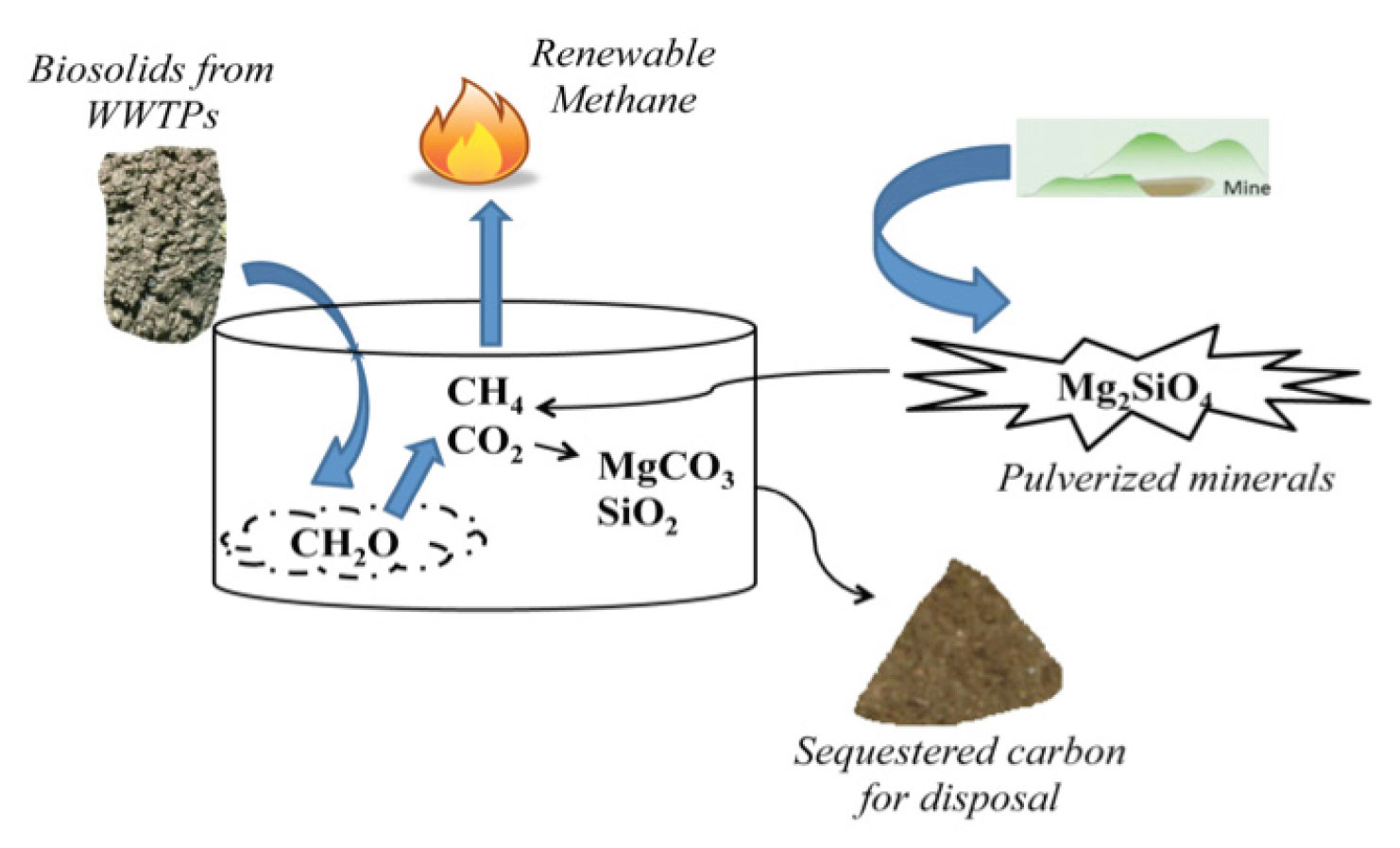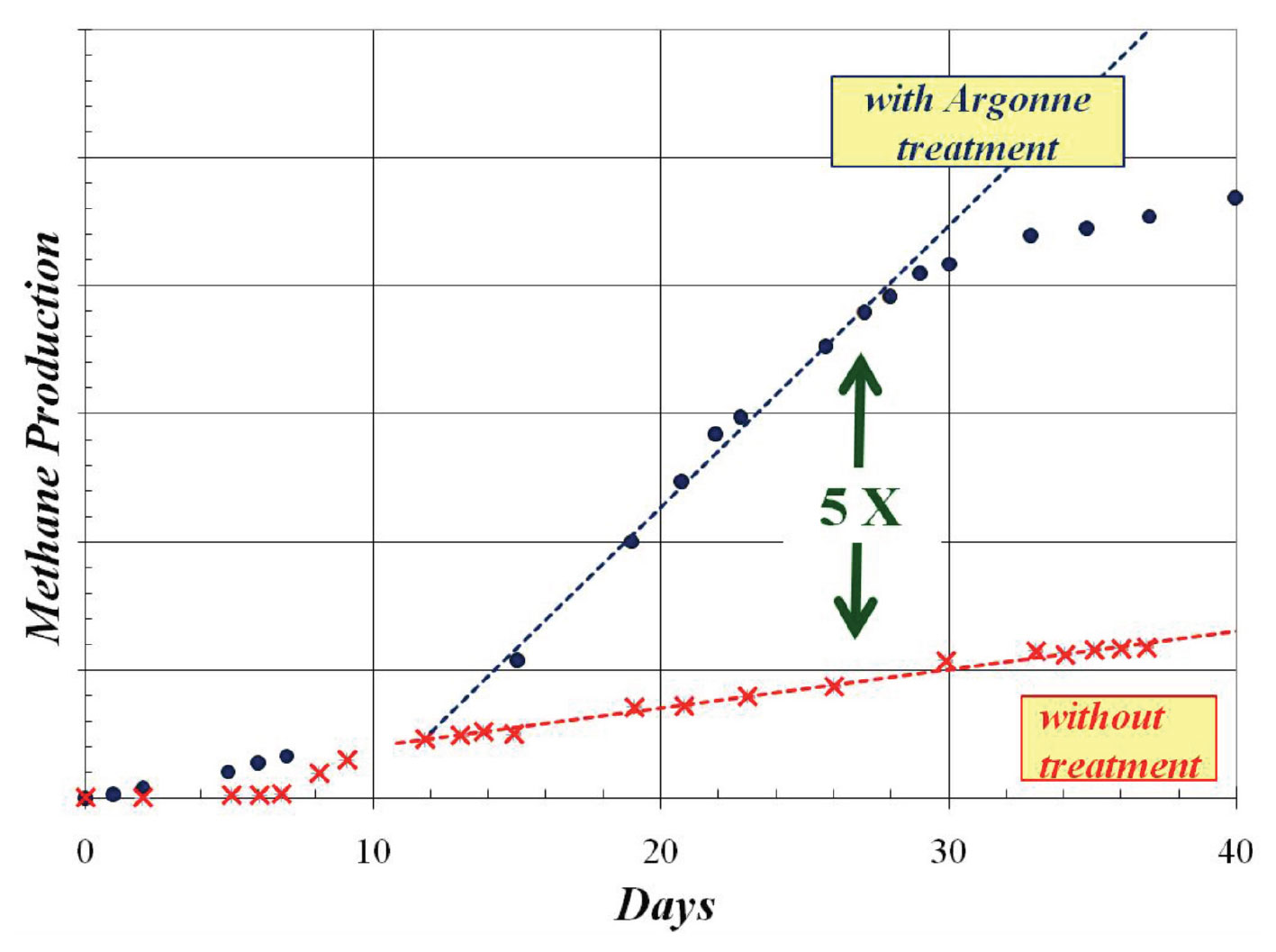Express Licensing
- Enhanced Renewable Methane Production System Benefits Wastewater Treatment Plants, Farms, and Landfills (ANL-IN-05-079)
The Invention
Argonne’s Enhanced Renewable Methane Production System provides a low-cost process that accelerates biological methane production rates at least fivefold. The innovative system addresses one of the largest barriers to expanding the use of renewable methane — the naturally slow rate of production. To overcome this challenge, Argonne researchers examined the natural biology of methane production, the natural processes for carbon dioxide (CO2) sequestration, and the environmental quality of the water found in coal bed methane wells. Their research led to the novel, low-cost treatment that enhances the heating value of biogas, delivering a gas that is close to pipeline quality. This system offers an improved means of producing biological methane at wastewater treatment plants, farms, and landfills.
Argonne’s system also simultaneously sequesters the CO2 produced during the process by reacting with magnesium and calcium silicate rocks. This innovation links the biological conversion (renewable carbon source being converted to methane and carbon dioxide) to a geochemical mechanism (producing solid carbonate-enriched minerals), thus eliminating CO2 emissions.
Benefits
- Produces near-pipeline-quality methane
- Enables simultaneous carbon dioxide sequestration
Applications and Industries
- Wastewater treatment plants
- Recovery of methane from manure and agricultural processing
- Recovery of methane from food processing wastes
- Methane from other carbonaceous feedstock.
Developmental Stage
Reduction to practice testing is complete. Researchers are now working on prototype-scale testing with field testing to follow.

